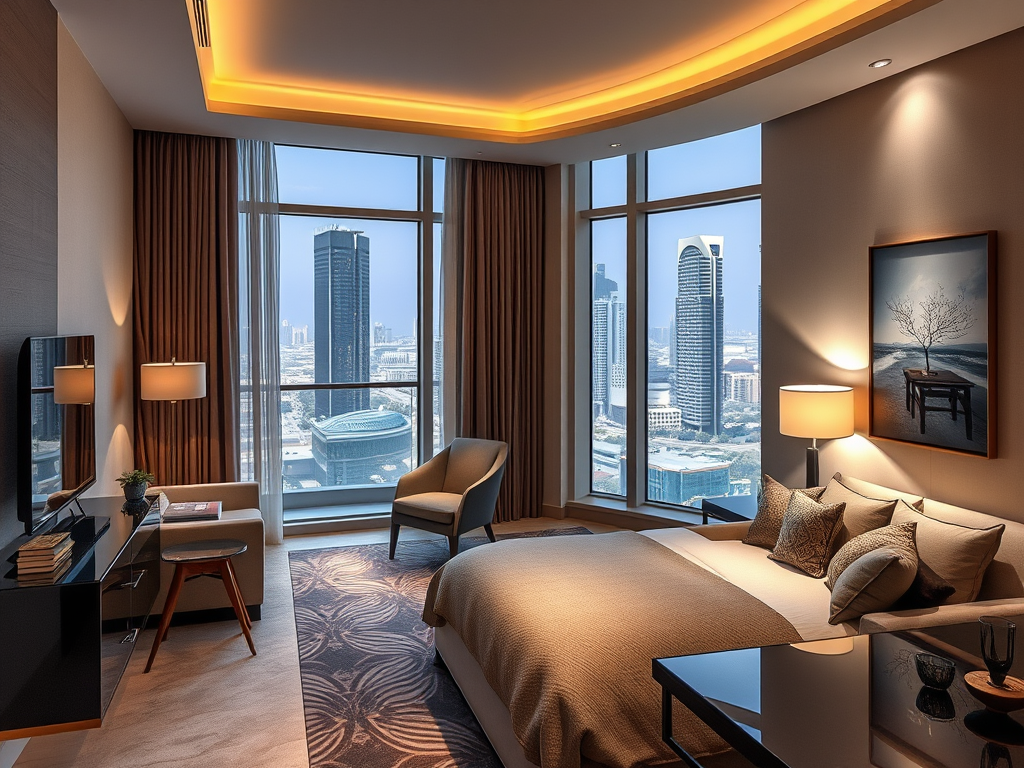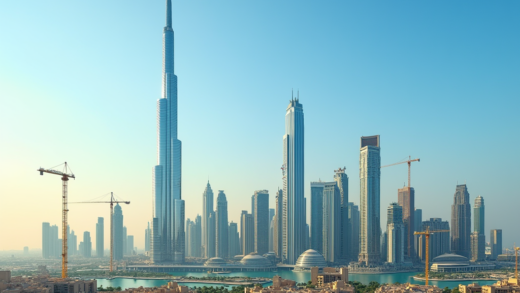If you are considering investing in Dubai’s hotel apartment market, you’re entering a thriving sector with immense potential for profitability. This dynamic city, known for its luxurious lifestyle and booming tourism industry, offers a unique opportunity to capitalize on the ever-growing demand for short-term accommodations. In this article, we will explore key strategies for effectively investing in this lucrative market, including understanding market trends, selecting the right property, and navigating the legal landscape. By following these steps, you can make informed decisions that maximize your investment returns.
Understanding the Market Trends

Before diving into any investment, it’s crucial to understand the current market trends that can impact your investment decisions. In Dubai, several factors contribute to the growth of the hotel apartment market:
- Tourism Growth: Dubai attracts millions of tourists every year, and this trend continues to rise. Events like Expo 2020 and a series of international festivals increase the number of visitors.
- Government Initiatives: The Dubai government is continuously working to enhance the tourism experience, investing in infrastructure and promoting the city as a global destination.
- Rental Demand: With rising costs of living, many people prefer hotel apartments as an affordable alternative to traditional long-term rentals.
- Sustainability Projects: Eco-friendly initiatives and sustainable developments are increasingly appealing to tourists, which boosts the attractiveness of certain hotel apartments.
- Market Resilience: The Dubai property market has demonstrated resilience, bouncing back swiftly from previous downturns, making it a reliable investment choice.
Selecting the Right Property

Choosing the right hotel apartment is critical to the success of your investment. Here are essential factors to consider:
- Location: Seek properties in prime areas with high foot traffic, such as Downtown Dubai or Dubai Marina, as they tend to attract more visitors.
- Developer Reputation: Research reputable developers known for high-quality projects, ensuring your investment is protected.
- Facilities and Amenities: Evaluate properties that offer amenities like pools, gyms, and restaurants, as these features can significantly enhance guest experiences.
- Rentability: Investigate the rental yields of comparable properties in the area to estimate potential income.
- Market Research: Stay updated on emerging neighborhoods and market demand, as investing in up-and-coming areas can yield higher returns in the long run.
Investing in the hotel apartment market in Dubai requires understanding the legal framework surrounding property ownership and short-term rentals:
- Ownership Structures: Determine if you prefer freehold or leasehold property. Freehold properties allow full ownership, while leasehold offer limited duration.
- Licensing: Ensure the property is licensed for short-term rental, as operating without proper permits can lead to fines.
- Regulations: Familiarize yourself with local regulations concerning short-term rentals, including maximum guest limits and operational guidelines.
- Management Services: Consider whether to hire a property management service that specializes in short-term rentals to simplify operations.
- Tax Implications: Consult with a tax advisor familiar with UAE real estate to understand any tax obligations associated with your investment.
Financing Your Investment
Securing financing is often one of the most challenging aspects of investing in property. Here are several options to explore:
- Personal Savings: Utilizing your savings can help avoid interest payments and mortgage commitments.
- Bank Loans: Many local and international banks offer favorable mortgage solutions for expatriates investing in Dubai.
- Property Development Loans: If you plan to develop your hotel apartment, consider specific loans designed for that purpose.
- Investment Groups: Joining investment groups can allow you to pool resources with other investors to fund larger projects.
- Crowdfunding: Explore real estate crowdfunding platforms that focus on Dubai investments to access varied funding resources.
Итог
Investing in Dubai’s hotel apartment market can be a rewarding endeavor when done strategically. By understanding market trends, selecting the right property, navigating legal requirements, and securing appropriate financing, investors can position themselves for success. As Dubai continues to grow as a premier destination for tourists and expatriates, the demand for hotel apartments is projected to remain high. Taking the time to conduct thorough research and carefully planning your investments will ultimately yield significant returns in this vibrant market.
Часто задаваемые вопросы
1. What is a hotel apartment?
A hotel apartment is a fully furnished accommodation that offers hotel-like services, including housekeeping and amenities, ideal for short-term stays.
2. How can I find the best hotel apartments to invest in Dubai?
You can find the best hotel apartments by researching locations, developer credibility, market trends, and rental yields, as well as consulting with real estate experts.
3. Are there restrictions on foreign ownership of hotel apartments in Dubai?
Foreign investors can purchase freehold properties in designated areas, enabling full ownership without restrictions.
4. How important is property management for hotel apartments?
Property management is crucial as it oversees the day-to-day operations, guest services, and maintenance, which can enhance the rental experience and profitability.
5. What are the typical rental yields for hotel apartments in Dubai?
Rental yields for hotel apartments in Dubai typically range between 7% to 10%, depending on location, property type, and market demand.


